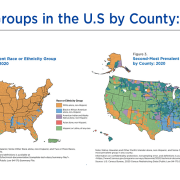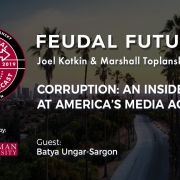Did Critical Race Theory Lose Virginia?
The stunning defeat suffered by the Democrats in Virginia, a surprisingly close race in deep blue New Jersey and the defeat of a “police defunding measure” in Minneapolis represent a remarkable turning point in American politics. It is less an affirmation of a resurgent Trumpism than a rejection of what might be called Bidenism, an unnatural merger of traditional Democratic corporate politics with a radical, progressive agenda.
Appealing to what James Carville, Bill Clinton’s campaign manager, has dubbed “faculty lounge politics” — with its emphasis on Critical Race Theory, racial quotas, transgenderism and defunding the police — has become an obvious flaw in their political strategy. These positions might prove popular in certain sections of the media, but not so much among the public.
The Virginia results made evident these failures, particularly on radical education and transgender policies. A state that was on the verge of becoming a deep blue bastion, largely based on the affluent Washington suburbs, moved to the Right in part due to resistance among parents to a new progressive education agenda that prioritised issues such as race, slavery and gender. State-wide polls taken just before the election showed Governor-elect Gregg Youngkin beat Democrat Terry McCauliffe by 15 points among parents.
Yet educational excess was not the only policy area that hurt the Democrats. Overall, the election was won in the Northern Virginia suburbs where the GOP reduced the large Trump deficit in half from 2020. Here, as across the state, the sagging economy and rampaging inflation will have dominated this election; exit polls show that taxes and economic worries were even larger factors than education, pushing voters towards Youngkin.
Not surprisingly the egomaniacal Trump and his minions will claim credit for the GOP gains — Republicans also won Virginia’s Lieutenant Governor race, the state Legislature and possibly the Attorney General — as their own. This is true in part, the Republican base in the state’s rural hinterlands overwhelmingly opted for Youngkin.
Some on the Right will no doubt view the elections an expression of “buyer remorse”, paving the way for a Trump restoration. Yet Trump, according to the national polls, remains barely more popular than the hapless Joe Biden, and would still likely lose Virginia. He would probably lose many of the affluent suburbs and, unlike Terry McCauliffe, would stimulate progressive voters and minorities to the polls.
In some sense Youngkin may have found the secret sauce for post-Trump Republicans — genuflect to Dr Demento, but don’t have him over for dinner, or brunch, or even in your state. While the Democrats focused on Trump — Biden cited Trump’s name 24 times during a campaign appearance on McAuliffe’s behalf last week — Youngkin sensibly zeroed in on the issues that matter most to your regular suburban family: public safety, schools and taxes. He realised that even moderate, liberal parents do not want racialism brought back into the schools, even if it’s introduced not by neo-Confederates, but impassioned social justice warriors.
His message helped him raise GOP shares, particularly among younger and middle aged voters, where Trump had been trounced in 2020, by double digits. He made a less impressive showing with minorities, who account for roughly a third of the state’s population, although he did win 30% more African-American votes — a key constituency in the former Confederate capital of Richmond in particular — than Trump. The GOP also was wise to nominate a former Marine and Jamaican immigrant, Winsome Sears, for Lieutenant Governor, who may have out-performed Youngkin in the race. Nominating and even electing racial minorities may be dismissed as “tokenism” by many, but ignores the fact that many minorities, and particularly immigrants, are more culturally conservative than the average American.
Read the rest of this piece at Unherd.
Joel Kotkin is the author of The Coming of Neo-Feudalism: A Warning to the Global Middle Class. He is the Roger Hobbs Presidential Fellow in Urban Futures at Chapman University and Executive Director for Urban Reform Institute. Learn more at joelkotkin.com and follow him on Twitter @joelkotkin.
Photo: Glenn Youngkin, via Flickr, CC 2.0 License.








 Paul Farmer, republished under CC 2.0 License
Paul Farmer, republished under CC 2.0 License